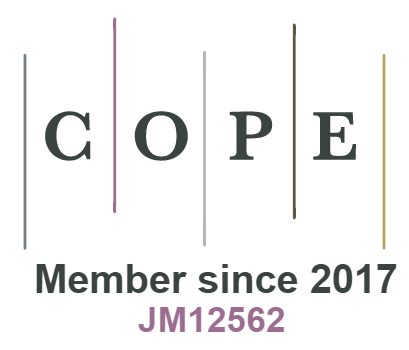Technology Entrepreneurship: Engineer the Industrial Evolution
DOI:
https://doi.org/10.18034/ei.v3i1.195Keywords:
Entrepreneurial aptitudes, entrepreneurship, Industrial evolution, personal quotient, tech entrepreneursAbstract
Importance of entrepreneurship always exists in India. Entrepreneurship is getting its color from the 1st day of LPG (Liberalization, privatization and globalization). Importance of entrepreneurship is further extended in the context of our national vision ‘Make in India’. For any entrepreneurship, technology is always considered as one of the most vital resource. In the modern era, technology entrepreneurship is the important parameter to measure the progress of the nations. In the true sense technology entrepreneurship means engineering the Industrial revolution. The aim of this research article is to analyze the personal quotient of tech entrepreneurs. This paper also makes an attempt to establish the significant relationship between personal quotient of tech entrepreneurs and their entrepreneurial aptitudes. This article also provides the bird’s eye view of different types and traits of tech entrepreneurs along with the various steps of Tech entrepreneurial process.
Downloads
References
Abdullah, Syahida and Muhammad, Amran (2008). The Development of Entrepreneurship in Malaysia: State-led Initiatives. Asian Journal of Technology Innovation. 16 (1). 101-116
Ács, Z. and Naudé, W.A. (2013). ‘Entrepreneurship, Stages of Development, and Industrialization’, (In Szirmai, A., Naudé, W.A., and Alcorta, L. eds. Pathways to Industrialization in the 21st Century. Oxford: Oxford University Press.)
Blank, S. (2013). ‘The Rise of Chinese Venture Capital’, at http://steveblank.com/2013/04/12/the-rise-of-chinese-venture-capital/ (accessed 03-7-2013)
Comin, D. and Mestieri, M. (2013). ‘If Technology Has Arrived Everywhere, Why Has Income Diverged?’ NBER Working Paper No. 19010.
Economic survey 2009-10, Ministry of Finance, Government of India. (http://indiabudget.nic.in/)
Fu, X., Pietrobelli, C. and Soete, L. (2010). ‘The Role of Foreign Technology and Indigenous Innovation in the Emerging Economies: Technological Change and Catching-up’, World Development, 39 (7): 1204-1212.
http://www.forbes.com/richest-in-tech/list/#tab:overall
Kemeny, T. (2010). ‘Does Foreign Direct Investment Drive Technological Upgrading?’ World Development, 38 (11): 1543-1554.
Lal, D. (2006). Reviving the Invisible Hand. Princeton: Princeton University Press.
Lee, S. Y., Florida, R., Acs, Z. (2004). Creativity and Entrepreneurship: A Regional Analysis of New Firm Formation. Regional Studies, 38 (8), 879-91.
Lipsey, R.G., Carlaw, K.I. and Bekar, C.T. (2005). Economic Transformations: General Purpose Technologies and Long-Term Economic Growth. Oxford: Oxford University Press Lundvall, B.
Naudé, W., Gries, T., Wood, E., Meintjies, A. (2008). Regional determinants of entrepreneurial start-ups in a developing country. Entrepreneurship &Regional Development, 20 (2), 111-24.
Pathak, S., Xavier-Oliveira, E.,&Laplume. AO (2013), Influence of intellectual property, foreign investment, and technological adoption on technology entrepreneurship, Journal of Business Research,66, 2090–2101
Petti, C. & Zhang, Sh. (2011). Factors influencing technological entrepreneurship capabilities Towards an integrated research framework for Chinese enterprises Towards an Integrated Research Framework for Chinese Enterprises. Journal of Technology Management in China, 6(1), 7-25
Valliere, D., Peterson, R. (2009). Entrepreneurship and economic growth: Evidence from emerging and developed countries. Entrepreneurship &Regional Development, 21 (5/6), 459-80.
Venkataraman, S. (2004). Regional Transformation Through Entrepreneurship. Journal of Business Venturing, 19 (1), 153-67.
Zhang, G., Peng X., Li J. (2008), Technological entrepreneurship and policy environment: a case of China, Journal of Small Business and Enterprise Development, 15(4), 733-751
--0--
Published
Issue
Section
License
Engineering International is an Open Access journal. Authors who publish with this journal agree to the following terms:
- Authors retain copyright and grant the journal the right of first publication with the work simultaneously licensed under a CC BY-NC 4.0 International License that allows others to share the work with an acknowledgment of the work's authorship and initial publication in this journal.
- Authors are able to enter into separate, additional contractual arrangements for the non-exclusive distribution of the journal's published version of their work (e.g., post it to an institutional repository or publish it in a book), with an acknowledgment of its initial publication in this journal. We require authors to inform us of any instances of re-publication.









